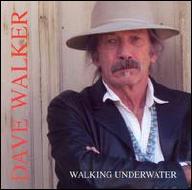Walker is best remembered, however, for the two years he spent helming Savoy Brown. Three albums, including the essential Street Corner Talking and Hellbound Train, plus the less dynamic (but still worthy) Lion's Share mark out Walker's time with the band and, for any number of American concert-goers of a certain age, they remain the definitive Brown sound, raw and rambunctious, exciting and energetic.
A native of nearby Walsall, Walker's musical background lay within the same Birmingham scene that conjured Fleetwood Mac, Chicken Shack, Black Sabbath, the Move, and half of Led Zeppelin out of the ether, a tough working class district whose audiences took no prisoners, and even in his teens and on-stage with his first band, the Redcaps, his performance was wild and raucous.
Walker joined the Redcaps as rhythm guitarist in early 1963, graduating to the microphone when original vocalist Ronnie Brown quit. Lining up now with guitarists Mick Blythe and Roy Brown, bassist Mike Walker, drummer Alan Morley, and saxophonist Mac Broadhurst, the Redcaps were snapped up by Decca, for whom they cut three singles, covers of the Isley Brothers' Shout and Chuck Berry's Talking About You, and a Mick Blythe original, Funny Things. But all three failed to bother the chart, and the Redcaps broke up.
Walker moved onto Beckett, Birmingham superstars who sadly, and strangely, never made their way out of the local circuit. They folded, unrecorded, in 1969, when Walker took on the unenviable task of replacing Jeff Lynne in the Idle Race. This lineup of the band recorded a new album (their third), but their fame spread no further than Latin America. Their version of Mungo Jerry's In the Summertime was an Argentinian number one in the summer of 1970.
It was his friend Stan Webb of Chicken Shack who recommended Walker to Savoy Brown (the two bands shared a manager), and it was his wild on-stage performances that recommended him to Fleetwood Mac once the Savoy Brown adventure was over. That sojourn, too, was short -- Walker was present for the recording of their Penguin album, but appeared on just two songs before it became apparent that the ubiquitous "musical differences" really were irreconcilable.
The Fleetwood Mac connection was not immediately severed. In 1974, Walker teamed with another of that band's alumni, guitarist Danny Koran (plus Savoy Brown's Dave Bidwell and Andy Sylvester) as Hungry Fighter. But a promising debut at the University of Sussex was followed by disaster when the band lost its equipment in a road accident that also severely injured their road manager and having canceled their next show, the band broke up.
Walker relocated to San Francisco in 1975. There he formed Raven, a breathtaking partnership with Quicksilver's John Cipollina, Steve Miller Band guitarist Greg Douglas, and bassist Skip Olson; when Cipollina left to concentrate on the various other bands with which he was then working, his bandmates re-formed as Mistress. Then came the phone call from Tony Iommi that found him flying back to England in November 1977 to join Black Sabbath.
Walker was brought into the fold to replace the recently sacked Ozzy Osbourne, and then eased out again when Osbourne was reinstated (for Never Say Die). The Walker lineup never recorded together, but they did make one television appearance, performing an early version of Junior's Eyes on the BBC regional show Look Hear in January 1978. Walker returned to the U.S., but his next project, the Dave Walker Band flourished briefly, but by the end of the decade he had effectively retired.
He re-emerged in 1986 in a new Savoy Brown lineup, cutting three albums over the next four years: Make Me Sweat, Kings of Boogie, and the concert recording Live and Kickin before departing again in 1991, and it would be 13 years before those oh-so-distinctive vocals were heard again with the release of Mostly Sonny in 2004. Since that time, he recorded with psychedelic revivalists Donovan's Brain and singer Angie Pepper before unleashing Walking Underwater in 2007. ~ Dave Thompson, Rovi












